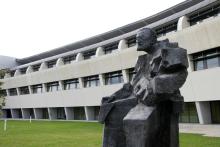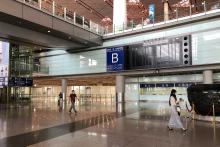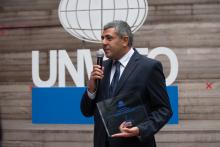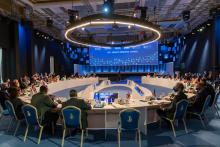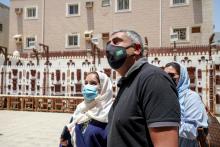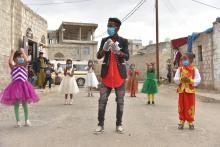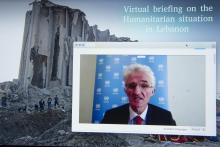The Digital Mask
Our global society has evolved to become increasingly dependent on digital technology. When the technology fails, this reliance can lead to a range of cascading negative effects.
Data, Partnerships and a Strengthened Food System: Accelerating Progress Towards Zero Hunger
The United Nations Secretary-General’s Policy Brief on “The Impact of COVID-19 on Food Security and Nutrition” points to several opportunities to lessen the impact of a food crisis during this pandemic. These opportunities are interlinked and speak to better data collection, building partnerships and strengthening the food system.
Harnessing Urbanization to Accelerate SDG Implementation in a Post-COVID-19 World
The United Nations Secretary General’s Policy Brief on “COVID-19 in an Urban World” is an important confirmation of the centrality of urban areas and urbanization to a holistic, local-to-global response to the pandemic. It appropriately emphasizes the need to address inequality and multidimensional development challenges; strengthening local capacities and responses, especially those of local governments; and accelerating inclusive, green economic recovery.
Post-COVID-19 Sustainable Cities: What Can Universities Do?
The high levels of global and local interconnectivity of cities leave them particularly exposed to deadly epidemics, as they have been throughout history. The recent Policy Brief: COVID-19 in an Urban World, issued by United Nations Secretary-General António Guterres, emphasizes that vulnerable sectors of urban societies are especially harmed both by the incidence of the virus and the economic impact of related shutdown measures.
Commentary: Policy Brief on COVID-19 and Transforming Tourism
The Policy Brief: COVID-19 and Transforming Tourism, issued recently by the United Nations Secretary-General, describes the severe, negative effects of the pandemic on global tourism, including job loss, the depletion of natural resources, worsening quality of life for women in the workforce and a lack of world heritage site protection.
Tourism Can Help Lead the World to Recovery
Only by making people feel safe and encouraging them to travel again will the benefits that tourism offers start to return. UNWTO, as the specialized United Nations agency for tourism, must lead by example.
Education During COVID-19 and Beyond: Commentary on the Secretary-General’s Policy Brief
As highlighted in the Secretary-General’s Policy Brief: Education during COVID-19 and beyond, there is an urgent need for action by all to ensure that the immediate disruption to education does not turn into a generational catastrophe.
World Peace in One Hour
Protecting the existence of all species, sustaining life on Earth, exploring outer space, tackling disease and mortality, solving the pollution problem, coexisting with the environment, electing more women to leadership positions and creating real freedom that includes true private property: world peace is a prerequisite for all of these objectives.
Peace Is Synonymous With Women’s Rights
This year’s International Day of Peace, observed on 21 September, should start by honouring all the lives that have been lost due to the COVID-19 pandemic. Peace is not only the synonym of harmony, security and well-being, but also a product of equality and non-discrimination. Peace, as we understand it, simply cannot exist if we exclude the welfare of women and girls, who comprise half of the world’s population.
Everybody Wins When We Help Fragile Countries Fight COVID-19
The economic cost of inaction is huge: countless millions more people being pushed into extreme poverty, decades of development progress lost, and the shadow of a generation’s worth of tragic and exportable problems looming.








